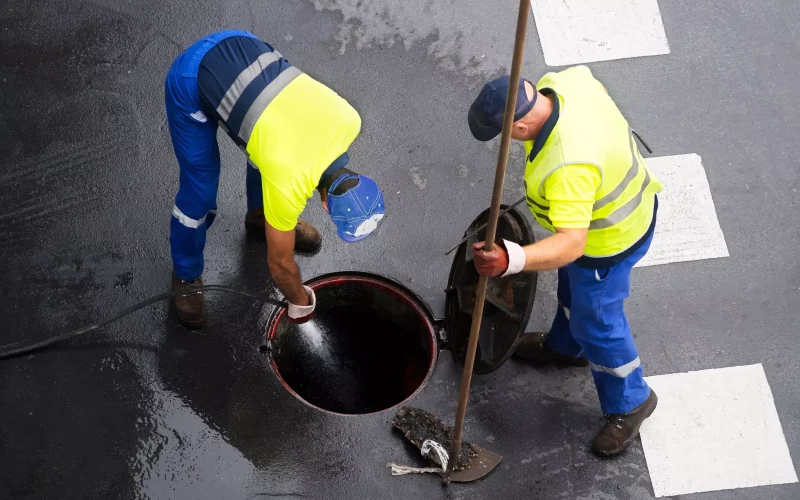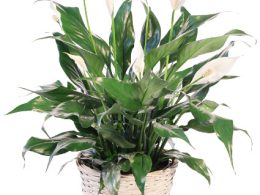Introduction
A blocked drain is one of the most annoying and stressful problems you can face at home or work. It can cause water to back up, create bad smells, and even damage your property. When a drain gets blocked suddenly, it turns into an emergency that needs quick action. But many people don’t know what to do first or how to fix the problem safely.
This article will guide you through the right steps to take during an emergency drain unblocking. We will explain common causes, quick fixes, and when to call a professional plumber. By following these tips, you can reduce damage and get your drains flowing again fast.
Why Do Drains Get Blocked?
Understanding why drains get blocked helps prevent the problem and know how to handle it. Here are some common causes:
- Hair and Soap Scum: Hair is one of the biggest reasons bathroom drains get blocked. Hair mixes with soap and forms sticky clumps that trap dirt and block water flow.
- Food Waste: In kitchen sinks, food scraps like grease, coffee grounds, and vegetable peels can build up and cause blockages if not disposed of properly.
- Foreign Objects: Sometimes small objects like toys, cotton buds, or sanitary products accidentally go down the drain and block pipes.
- Grease and Oil: Pouring cooking oil or grease down the sink causes it to harden inside pipes, trapping debris and blocking water flow.
- Tree Roots: In outdoor drains, tree roots can grow into pipes and cause serious blockages over time.
Signs of a Blocked Drain Emergency
Knowing the signs can help you act fast before the problem gets worse:
- Water drains very slowly or not at all
- Foul or strange smells coming from drains
- Gurgling sounds from toilets or sinks
- Water backing up into sinks, baths, or toilets
- Wet patches or flooding near drain areas
If you see these signs, it’s time to take action quickly.
Immediate Steps to Take in an Emergency Drain Unblocking
1. Stop Using Water
The first and most important step is to stop using any water that drains into the blocked pipe. Turning off taps, showers, and appliances like washing machines prevents more water from backing up and causing damage.
2. Remove Visible Blockages
Check the drain openings for any visible blockages you can safely remove. Use gloves to pull out hair or debris from bathroom drains. In kitchen sinks, remove food scraps from the strainer.
3. Use a Plunger
A plunger can be very effective in clearing minor blockages in toilets, sinks, and bathtubs. Make sure to use the correct plunger for the drain type, create a good seal, and push and pull the plunger forcefully to dislodge the blockage.
4. Try a Drain Snake
If the plunger doesn’t work, a drain snake or auger is the next tool to try. This long, flexible wire is fed into the drain to break up or pull out blockages. Be gentle to avoid damaging pipes.
5. Avoid Chemical Drain Cleaners
While chemical cleaners promise to clear blockages, they can damage your pipes and harm the environment. They can also make the problem worse if used incorrectly. It’s best to avoid them or use only eco-friendly, mild products.
6. Flush the Drain with Hot Water
After clearing some blockage, pour boiling or very hot water down the drain to help melt grease and wash away loose debris. Be careful with boiling water if you have PVC pipes, as very hot water can soften them.
When to Call a Professional Plumber
Some blockages are too big or deep for DIY methods. You should call a plumber immediately if:
- The blockage does not clear after using a plunger or snake
- Multiple drains are blocked at the same time (could be a main sewer line problem)
- Water is backing up into toilets, showers, or basements
- You notice foul smells that don’t go away
- There is flooding or damage to property
Professional plumbers have the right tools and experience to unblock drains safely. They may use high-pressure water jetting or special cameras to find and fix blockages quickly.
Tips to Prevent Future Drain Blockages
Taking simple precautions can save you from future emergencies:
- Use drain strainers to catch hair and food scraps
- Avoid pouring grease or oil down the sink
- Dispose of large food waste in the trash, not the sink
- Regularly clean drains with hot water and mild cleaners
- Have drains inspected every year by a plumber
- Don’t flush non-flushable items like wipes or sanitary products
The Cost of Ignoring a Blocked Drain
Ignoring a blocked drain can lead to serious problems such as:
- Water damage to floors, walls, and furniture
- Bad smells affecting indoor air quality
- Growth of mold and bacteria
- Increased repair costs over time
- Health risks from stagnant water and sewage
Acting quickly saves money and keeps your home safe.
Emergency Drain Unblocking Tools You Should Have at Home
It’s a good idea to keep a few basic tools handy for minor blockages:
- Plunger (for sinks, toilets, and tubs)
- Drain snake or auger
- Drain strainer
- Rubber gloves
- Bucket and towels for cleanup
Having these ready helps you handle small problems before they get worse.
Conclusion
A blocked drain can quickly turn into a stressful emergency, but knowing the right actions to take can make all the difference. Start by stopping water use, removing visible blockages, and using simple tools like plungers or snakes. Avoid harsh chemicals that can damage pipes, and don’t hesitate to call a professional plumber for serious issues.
Preventing blockages with regular care and mindful habits saves you from costly repairs and inconvenience. Remember, quick and careful response to an emergency drain unblocking keeps your home safe, clean, and running smoothly.












